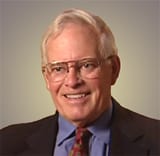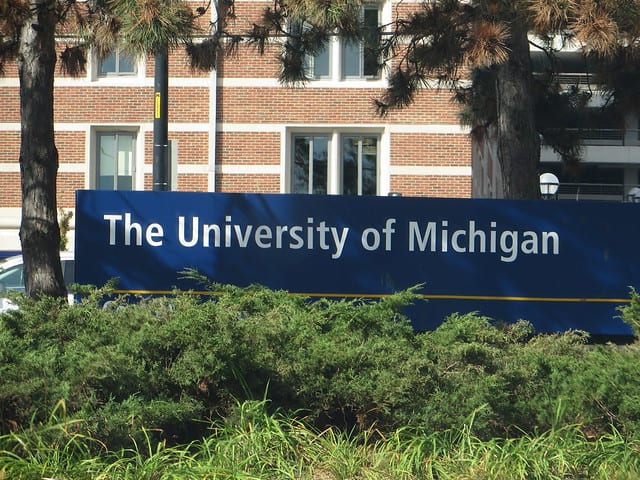Tanton had donated his papers to the univesity, under the condition they not be publicized until 2035.
A state appeals court will compel the University of Michigan to unveil papers donated to the school by John Tanton, the ophthalmologist who kickstarted today’s anti-immigration movement.
According to MLive.com, the panel reversed a 2017 Court of Claims decision against Hassan Ahmad, who’d filed a Freedom of Information Act request for the papers. Ahmad had been hoping to access 10 of the 25 boxes donated to Michigan’s Bentley Historical Library.
However, Tanton’s donation came with a stipulation—that his writings and correspondences be kept outside the public eye until at least 2035.
Tanton’s papers, notes the Detroit Free Press, aren’t constrained to a single subject. Some detail his involvement with Northern Michigan Planned Parenthood, as well as conservation groups like the Sierra Club.
Critically, though, Tanton’s stash includes series wound up with Zero Population Growth and the Federation of American Immigration Reform. The latter organization was founded by Tanton in 1979, its intent to end illegal immigration while simultaneously curbing authorized entries.
In court, Ahmad suggested that the University of Michigan is storing and maintaining the documents consistent with its mission as a public institution.
“The clear implication is that the University was holding the papers with the intent to open them to research {and students) at that later time,” the panel concluded. “Accordingly, we read the complaint as alleging that defendant ‘maintained the records’ in the performance of an official function, which, under the FOIA’s definitions, renders them ‘public records.’ Therefore, contrary to the ruling of the Court of Claims, the complaint states a valid claim that the records are public records.”
MLive reports that the University of Michigan is considering an appeal to the state supreme court, although its attorneys have yet to make a decision.

School spokesperson Rick Fitzgerald emphasized that the university plans, at the very least, to “vigorously defend” the rights of individuals to donate historically significant papers, regardless of their political orientation.
“Potentially controversial papers could be of even greater interest to future scholars,” Fitzgerald said. “If we don’t take these steps, individuals would be more inclined to donate their papers to private institutions, where FOIA doesn’t apply and where there is no guarantee that the public would ever have access.”
But for Ahmad, the ruling’s a clear victory—one which not only aligns with law but has the potential to reveal connections between anti-immigrant activists and the Trump administration.
“This case is about transparency,” Ahmad said. “You can’t contract around the law: public record means public record. And when those records may show connections between white nationalists and the White House, I can’t imagine a stronger public interest. Look at what’s happening at the border, in child jails, in our immigrant communities.”
Ahmad, adds the Free Press, has argued that Tanton played an integral role in influencing how immigrants and immigration are viewed by contemporary politicians. Tanton’s ideas, Ahmad alleges, have fed into the kinds of policies implemented and pursued—to varying degrees of success—by President Trump.
Tanton has been characterized by groups like the Southern Poverty Law Center as prejudiced, especially against Latinos. Some of his letters from the 1990s advocate the ‘preservation’ of the United States as a bastion of European-American society—a society that should be protected, primarily by ensuring that non-Hispanic whites retain a clear ethnic majority.
Sources
Appeals Court favors release of University of Michigan records of anti-immigrant leader
Judge: Anti-immigration activist’s papers at University of Michigan are public record


Join the conversation!